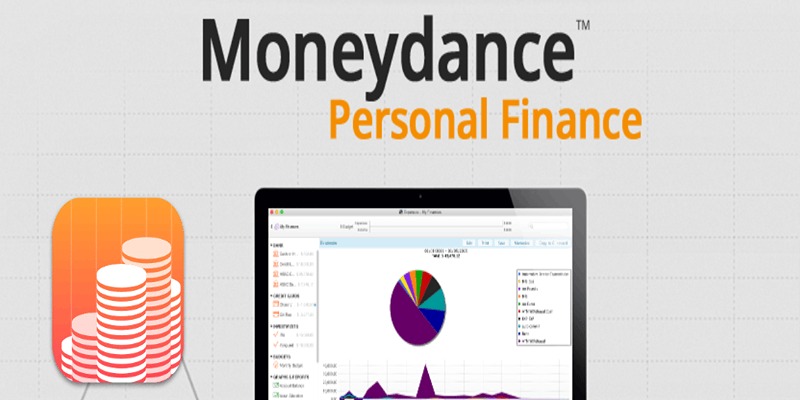Home equity loan vs. mortgage: Differences, pros and cons
Feb 07, 2024 By Susan Kelly
Advertisement
Are you looking for a way to invest in your house without going through all the trouble of selling it? Consider obtaining a home equity loan or a mortgage.
Both are types of loans that can give homeowners access to cash, but they have significant differences and pros & cons that should be considered before delving into any financial commitment.
In this blog post, we will break down what makes each type of loan unique and discuss their respective advantages/disadvantages so you can make an informed decision about which route to take regarding financing your property.
So if you're curious about how a home equity loan differs from a traditional mortgage, keep reading!
Overview of Home Equity Loan vs. Mortgage

Home equity loans and mortgages are two popular financing options in real estate. They both involve taking a loan against the value of your property, but each one has different terms, advantages, and risks.
The main difference between a home equity and a mortgage is that a home equity loan is taken out as a lump sum amount with fixed repayment terms, while a mortgage is a more flexible loan with variable repayment terms.
How Do Home Equity Loans and Mortgages Differ from Each Other

Home equity loans and mortgages are both types of financing that enable homeowners to borrow money using the value of their home's collateral.
However, important differences between the two must be considered before making a deciding equity loan, or HEL, a lump-sum loan that uses your home's equity as collateral. It typically has a fixed rate; the loan term is usually between five and 15 years.
On the other hand, a mortgage is an instalment loan that must be paid back in monthly payments over several years.
Home equity loans have some advantages over mortgages. For one thing, they typically offer lower interest rates than mortgages because your home secures them. And since you receive the entire loan in one lump sum, they are easier to manage and pay off.
On the other hand, mortgages offer more flexible terms than HELs, so they can be more accommodating for borrowers with less financial stability.
When considering a home equity loan or mortgage, weighing the pros and cons is important.
Home equity loans offer lower interest rates and are easier to manage, but they may be better for those with limited income or who need more flexible repayment terms.
Mortgages, meanwhile, can provide more flexibility but may come with higher interest rates. Ultimately, the decision should be based on your financial situation and goals.
Pros and Cons of Home Equity Loans
Pros
- Home equity loans have lower interest rates than most other loan types. This makes them an attractive option for borrowers who need a low-cost loan.
- Home equity loans are often easier to qualify for since they use the borrower’s home as collateral, and lenders can usually provide more favourable terms due to the security of the asset.
- Home equity loans can finance large expenses such as home improvements, debt consolidation, or medical bills.
Cons
- Home equity loans can put your home at risk if you cannot meet payment obligations.
- Home equity loans require a one-time closing cost which can add up quickly.
- Home equity loan payments may be higher than regular mortgage payments since they are often set up on a shorter repayment period.
- Home equity loans can have high-interest rates if the borrower does not have an excellent credit score, making them more expensive than other loan types.
Pros and Cons of Mortgages
Pros
- Mortgages typically come with lower interest rates than home equity loans
- They are typically more secure than other types of loans, and creditors may be more willing to lend you money
- Mortgages can help build your credit score over time
Cons
- The process of obtaining a mortgage can be long and complex, often involving multiple steps such as obtaining a credit report, appraising the property, applying for the loan, and meeting any additional qualifications.
- Mortgages usually require larger down payments than home equity loans
- You may have to pay private mortgage insurance if your loan amount is more than 80% of your home's value
What Should You Consider Before Applying for a Home Equity Loan or Mortgage
When it comes to taking out a loan to finance a home purchase, there are two common types of loans that you should consider: home equity loans and mortgages.
Both have advantages and disadvantages, so it is important to understand their differences before determining which is right for your situation.
A home equity loan is a loan in which you borrow against the equity you have built in your home.
This means that your lender will use the value of your home as collateral for the loan, and it is typically used to finance major projects such as home repairs, renovations, or other expensive purchases.
Home equity loans customarily have lower interest rates than traditional mortgages since your home secures them.
On the other hand, mortgages are traditional loans used to purchase a home and are typically taken out from a bank or mortgage lender.
Mortgages will require you to put up your house as collateral for the loan but can also come with lower interest rates if you have a good credit score.
Additionally, they may offer more flexibility than home equity loans, as you can often use them to purchase a new home or refinance an existing one.
How to Choose the Right Financial Option for Your Needs
When financing a home purchase, several options are available to potential buyers. A home equity loan and a mortgage are two of the most common financial paths when purchasing a property.
Knowing the differences between these two types of loans can help you decide which is right for your needs.
When considering a home equity loan vs. a mortgage, it’s important to understand their similarities and differences.
A home equity loan is a loan in which you borrow against your home's equity.
The amount you can borrow depends on how much equity you have built up over time by making payments on your mortgage.
It’s often used to consolidate debt or pay for major expenses.
Mortgages are long-term loans used to purchase a home. Depending on the loan terms, these loans can have different repayment periods and interest rates.
Mortgages usually involve closing costs and other fees, such as application or appraisal costs, that must be paid upfront.
FAQs
Is a home equity loan the same as a mortgage?
No, a home equity loan is not the same as a mortgage. Your home secures a home equity loan, whereas a mortgage is used to purchase the property. Each option has pros and cons, which should be considered before deciding.
What are the advantages and disadvantages of a home equity loan?
The advantages and disadvantages of a home equity loan include the potential for lower interest rates than on other types of loans, increased borrowing power, potential tax savings, and risks such as changes in housing prices or defaulting on monthly payments.
On the other hand, there are also fees associated with taking out a home equity loan, and borrowers must be able to make monthly payments. It is important to carefully consider all options before making a decision.
What is the major disadvantage of a home equity loan?
The major disadvantage of a home equity loan is the risk of defaulting on the payments due to changes in housing prices or other financial hardships.
There are also fees associated with taking out the loan, which can add up over time. Therefore, borrowers should ensure they can make payments before committing to a loan.
Conclusion
In conclusion, it is important to understand the differences between a home equity loan and a mortgage, their pros and cons, and how they can benefit or harm your financial situation. It is also important to thoroughly research all available options before making a financial decision.
Advertisement
-
 Banking Oct 26, 2024
Banking Oct 26, 2024How Construction Loans Work: Your Ultimate Guide to Financing a New Build
Our in-depth guide covers everything about construction loans—from types and qualifications to the loan process—so you can confidently finance your home construction project
-
 Mortgages Nov 21, 2023
Mortgages Nov 21, 2023New American Funding (NAF) Mortgage Review for 2023
Are you planning on applying for a mortgage from Paramount Bank? Get the facts before deciding with this comprehensive review of all the services and offers they provide in 2023.
-
 Know-how Sep 18, 2024
Know-how Sep 18, 2024Moneydance Review: Unpacking Its Key Benefits and Features
Discover how Moneydance simplifies personal finance management with its user-friendly interface, comprehensive features, and strong security options.
-
 Investment Feb 28, 2024
Investment Feb 28, 2024How Life Insurance Works?
Need to understand how life insurance works and decide if it's right for you? Learn the basics of life insurance in this helpful post from an expert.
